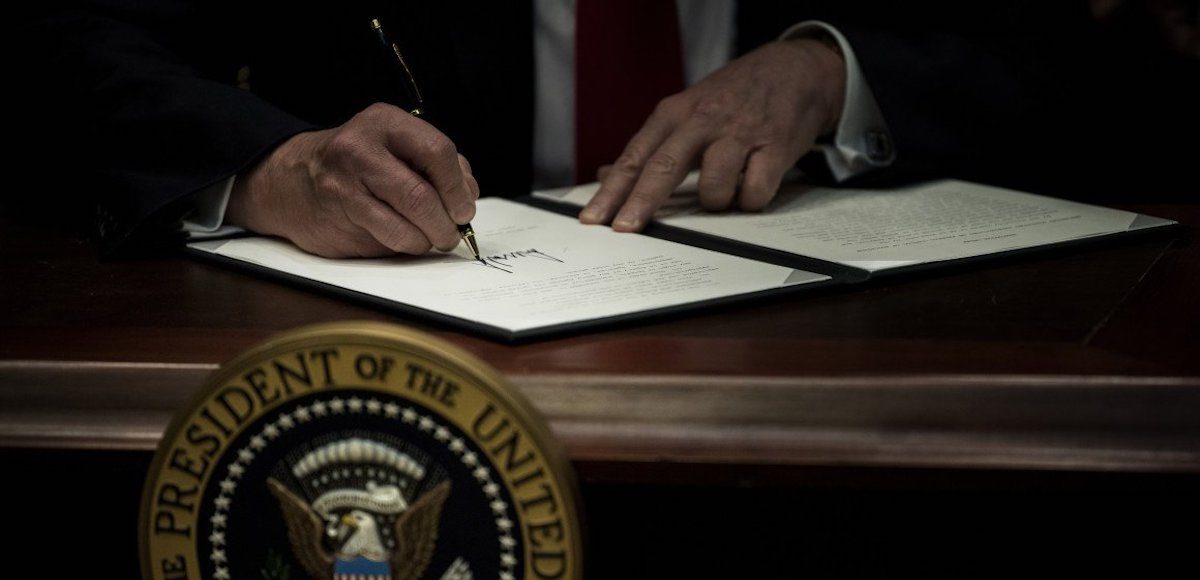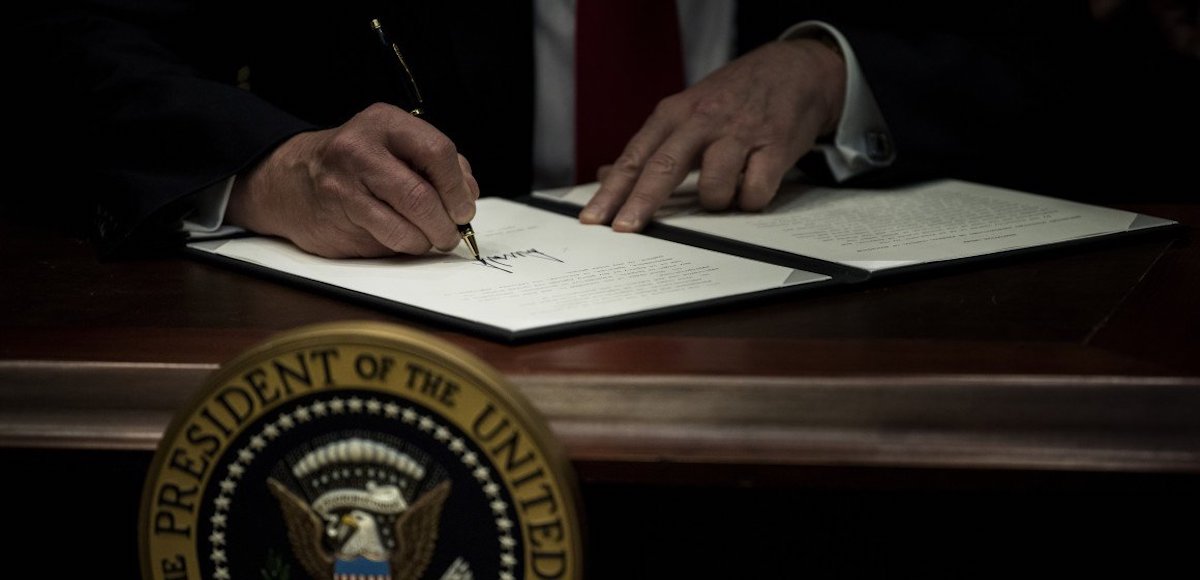

President Executive Order (Photo: AP)
The Trump Administration has asked the U.S. Supreme Court to reinstate the executive order travel ban that liberal courts have blocked amid growing terror threats. The Department of Justice (DoJ) filed two emergency applications with the Court seeking to reverse two lower court rulings that halted President Trump’s executive order.
In the filing, the Justice Department argued that the liberal 4th Circuit Court of Appeals in Richmond, Va. made several mistakes in ruling against Trump’s travel order.
“The Justice Department is confident that President Trump’s executive order is well within his lawful authority to keep the nation safe and protect our communities from terrorism,” said Sarah Isgur Flores, a Justice Department spokeswoman. “The president is not required to admit people from countries that sponsor or shelter terrorism, until he determines that they can be properly vetted and do not pose a security risk to the United States.”
The “Executive Order Protecting The Nation From Foreign Terrorist Entry Into The United States” specifically cites the president’s authority to suspend refugee entries for 120 days granted by the U.S. Constitution and the U.S. Congress, the latter being the Immigration and Nationality Act (INA).
Whenever the President finds that the entry of any aliens or of any class of aliens into the United States would be detrimental to the interests of the United States, he may by proclamation, and for such period as he shall deem necessary, suspend the entry of all aliens or any class of aliens as immigrants or nonimmigrants, or impose on the entry of aliens any restrictions he may deem to be appropriate.
However, unlike the first order, which was blocked by the 9th Circuit Court of Appeals, it also details categories of people eligible to enter the United States for business or medical travel purposes, no longer suspends Syrian refugee admissions indefinitely and excludes Iraq.
Still, the 4th U.S. Circuit Court of Appeals said the national security element an after-the-fact justification for a policy that was “intended to bar Muslims from this country.” While the order banned entry for people from six Muslim majority nations–including Iran, Libya, Somalia, Sudan, Syria and Yemen–for 90 days while the U.S. implements stricter visa screenings, roughly 90% of the world’s Muslim population was not impacted.
The Department of Homeland Security (DHS) recently revealed nearly a third of the 1,000 domestic terrorism cases currently being investigated by the Federal Bureau of Investigation (FBI) involve those admitted to the U.S. as refugees.
Officials said a significant percentage of those 300 came to “infiltrate” the U.S., while others were radicalized once they were in the country.
In 2015, former FBI Director James Comey said the Bureau was investigating roughly 900 terror probes including every U.S. state. But the report represents the first official solid tie between the refugee resettlement program and an increase in terrorism.
“If that becomes the new normal, that would be hard to keep up,” ” Mr. Comey said.







